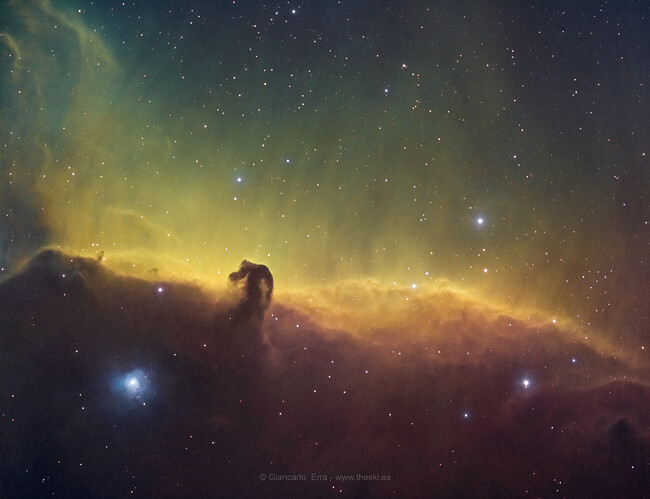Several nights of work and integration between ice, clouds, snow, Moon, Voyager once again helped me collecting all I needed to realise this photo.
I keep striving to produce astrophotos in a slightly contrarian way that is more pleasing to my eyes (and more true to the nature of most Hubble pictures), avoiding any over saturation/contrast/deconvolution/denoise etc. and instead trying to keep images as smooth and ‘natural’ as possible.
Very proud of this one, it was not easy to keep all colours fading naturally into each other while still trying to show them.
Done with my Esprit 120 and ASI1600 on HEQ5, all superbly planned, controlled and executed by Pixinsight 
7 Likes
This is a beautiful photo. I like everything about it. Congratulations.
Best,
Glenn
1 Like
Thank you, I think in this one the high resolution of the 1600 and lots of dithering/drizzling really helped to get into the finer details without much processing.
I keep using a new way of collecting subs than what I did before, following Leo’s suggestion. I used to collect data per each filter all together, while now I have sequences where I change filter every hour or even half hour, and that helps with focus, quality, consistency, and also in case sequence stops and restarts for clouds.
1 Like
Really nice image … look natural and really a pleasure to admire.
All the best
Leonardo
1 Like
Thanks to you Leonardo for developing Voyager!
Honestly, I would not have all the system I have and all the nice images I’m doing without it, it would be simply impossible to automate everything outside so that it deals with clouds or rain automatically while I sleep 
And that’s what allow me to use every single useful hour and collect lots of images to select only the best ones!
Keep on the work mate 
2 Likes
So great! Congrats on the outcome!
1 Like
Probably one of the best that I have seen so far. VERY WELL DONE.
1 Like


